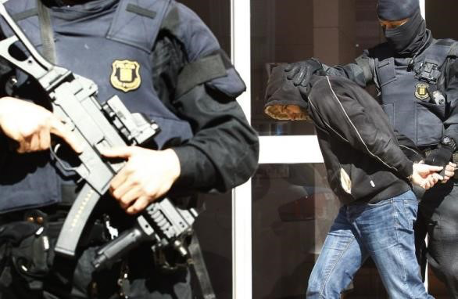
Although there has been a recent spate of terrorist attacks in Europe, jihadism on the continent has declined markedly, according to The Economist (November 3, 2020). The number of completed Islamist attacks fell every year from 2017 to 2019, while the number of failed or foiled ones rose, according to Europol, the EU’s law-enforcement agency. Only ten people were killed in 2019, mostly by the Islamic State (IS), which has recruited up to 5,000 or so European recruits. When the IS “caliphate” was defeated in 2019, European security officials feared that these returned jihadists would be difficult to keep track of. In reality, IS veterans “have not proven as numerous or violent as feared, even if the group’s ideology has remained potent.” Yet the threat of radicalization continues to loom for security services. In a speech in October, Ken McCallum of MI5, Britain’s domestic-intelligence service, said that Islamist extremism remained potent, with the plots becoming harder to foil “as more terrorists have gone for basic attack methods requiring little preparation.”
 None of the recent attackers in Europe are thought to have reached Iraq or Syria to join the IS, though the suspect in Germany had been convicted of recruiting on behalf of the group. The magazine adds that “The problem seems to be less about hardened combat veterans than those with looser ties to the jihadist ecosystem turning to violent action,” Propaganda continues to circulate freely online, with one European Parliament measure to remove online propaganda remaining dormant for almost two years. Another concern is that European deradicalization programs in prisons have been ineffective or inactive. The suspects in the recent cases were either let out of prison early or released days before the attacks. One had completed a deradicalization program. “In many European countries the priority was to get people locked up,” says Peter Neumann of King’s College London, “and then to forget about them, with many becoming further radicalized in prison.”
None of the recent attackers in Europe are thought to have reached Iraq or Syria to join the IS, though the suspect in Germany had been convicted of recruiting on behalf of the group. The magazine adds that “The problem seems to be less about hardened combat veterans than those with looser ties to the jihadist ecosystem turning to violent action,” Propaganda continues to circulate freely online, with one European Parliament measure to remove online propaganda remaining dormant for almost two years. Another concern is that European deradicalization programs in prisons have been ineffective or inactive. The suspects in the recent cases were either let out of prison early or released days before the attacks. One had completed a deradicalization program. “In many European countries the priority was to get people locked up,” says Peter Neumann of King’s College London, “and then to forget about them, with many becoming further radicalized in prison.”